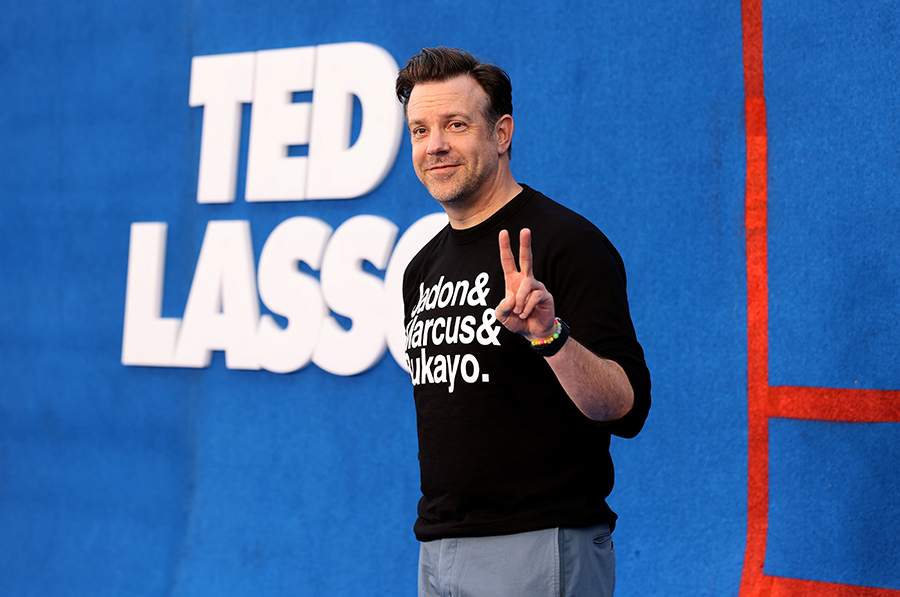I love the show, Ted Lasso. I love it because it’s funny, clever, and heartful. I love it because, against the backdrop of a protracted pandemic and the onslaught of daily, painful world events to digest, the show delivers an optimism many need at this moment. Professionally, I also love it because it depicts dynamics that are particularly resonant to my work.
A central idea animates my work as an executive coach and psychotherapist: underneath our professional challenges are often psychological or emotional dilemmas we must face. To evolve professionally, we must transform personally. We must learn to grow up at work.
Ted Lasso, the character, a newly minted soccer coach in the UK, shows us what it means to grow up at work in a few primary ways. (Spoiler alert for those who are new to the show).
1. Positivity is powerful (but it also has its limits).
For the first season of Ted Lasso, we meet a protagonist possessing a sincerity that borders on being a hokey caricature of the past. Ted speaks in a folksy, mildly southern drawl (albeit with hip Gen X pop culture references). And despite hordes of crowds calling him awful names in public, Ted Lasso meets the negativity and hostility of others with a smile. He is nearly otherworldly with his good-natured smile and warmth.
Throughout the season, we see Ted’s sincere positivity win over his boss (who secretly hoped that he would fail for her own reasons of personal revenge). We also watch him turn a struggling group of soccer players into more of a cohesive, inspired, successful team by staying positive in the face of team losses.
Aside from Ted Lasso, I’ve rarely seen such a sweet example of the power of positivity a leader can have on others. Research tells us that our emotions are contagious, and in this way, Ted infuses those around him with a sense of purpose and hopefulness that becomes infectious.
However, when the team is still struggling to win, and Ted starts to face his difficulties, we begin to see the limits of approaching everything positively. When positivity becomes a cover for more complex emotions, we can sense it. We start to realize that Ted has used positivity as a coping mechanism, but it’s become a form of deflection and avoidance. The positivity that used to be inspiring starts feeling fake and stale. We sense something else underneath, something that quickly cuts at a perception of authenticity — one of the attributes associated with inspiring leadership.
2. To become emotionally mature and whole, we must face our shadow.
Into season one, we learn that Ted’s wife wants a divorce. Part of the reason she cites is his chronic positivity. Ted appears internally distraught about this but holds his pain close. As time goes on, Ted begins to have what turns out to be panic attacks. He doesn’t tell anyone what he has experienced and makes up the excuse of food poisoning after he panics in the middle of a game. Meanwhile, in season two, we watch Ted deliberately avoid a meaningful conversation with the new psychotherapist for the team, a professional that has been increasingly helping his players navigate their emotional challenges.
Only when Ted breaks down, his cheerful veneer no longer on display, do we see the pain, fear, and anguish he’s experiencing. In psychotherapy, this can be referred to as our “shadow” — the usually painful part of our experience that we avoid feeling. But what we resist persists, and only when Ted Lasso allows himself to start feeling his pain, start experiencing his shadow do we see the beginnings of him as a more emotionally mature and whole human being.
3. Sharing our emotional honesty is liberating and connects us to others.
In a recent episode of Ted Lasso, the show ends with Ted sharing his truth with others. Right before a game, in a coaches huddle, he tells his colleagues that his recent bout of “food poisoning” was actually a panic attack, and he shares that he’s been having them lately. He wants them to know this, and they look visibly moved by his emotional honesty.
Once Ted shares his truth, his friends are inclined to do the same. One shares that he recently made an administrative mistake that could be costly to the team. Another shares that he was intoxicated at a previous match. They share truths that they would have otherwise been too shy or self-conscious to share, but it’s clear they all feel liberated by being honest.
When we share our emotional truth with others, when we show up with vulnerability and honesty, we invite the same from those around us. Others realize they don’t have to keep up the unconscious superficial game many of us play to show that we’re in control. By giving ourselves permission to be real, others are inspired to do the same. As a result, they feel closer to us, and we connect deeper.
Ted Lasso isn’t just a fun show to watch and a needed salve for our days; it’s also an instruction manual on becoming a more emotionally mature and whole adult. By bringing our maturity to work, we grow up as adults and end up helping the workplace have more maturity and integrity as we inspire others to do their “inner work,” too.




































